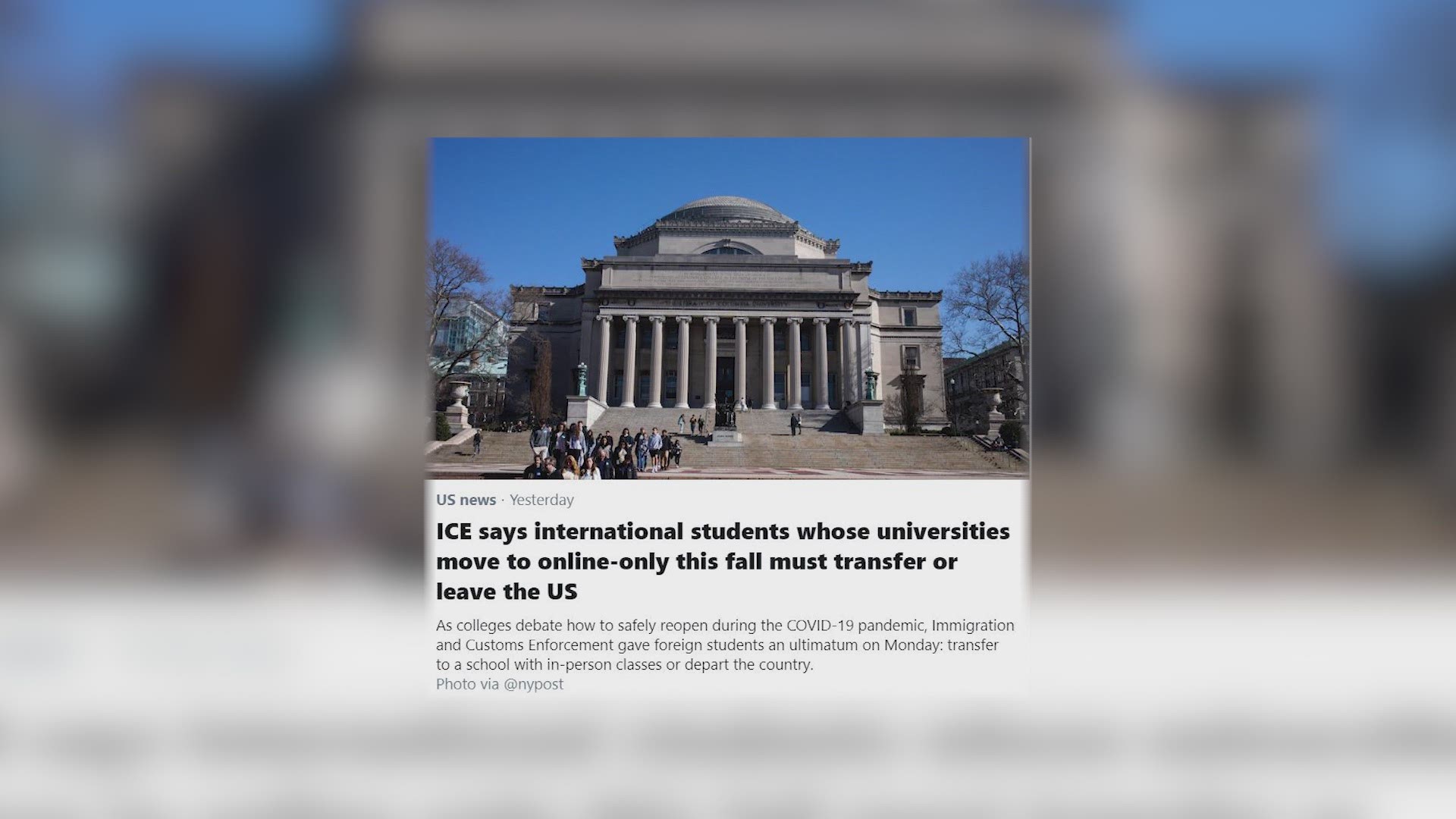SAN ANGELO, Texas — The U.S. Immigration and Customs Enforcement just made a new ruling that says foreign students attending U.S. colleges that have decided to operate entirely online this fall semester cannot remain in the country to do so.
The ruling, made on Monday, applies to holders of F-1 and F-1 nonimmigrant visas, which allow nonimmigrant students to pursue academic and vocational coursework.
"I think the new law is kind of unfair for Vietnamese students because there's no way back home," said Huy Nguyen, a Vietnamese international student at Angelo State University.
Huy Nguyen and other international students at Angelo State will be able to remain on campus for the fall semester because ASU is holding both online and in-person classes. Vietnamese students studying at places like Harvard and the University of California Berkeley, however, will have to return to Vietnam. Travel that, according to Huy Nguyen and fellow Vietnamese student Trinh Nguyen, will not be an easy feat.
"As of right now, we are not taking flights from the United States and a lot of other countries. So, it's hard for the students to get back. We do some flights every once in a while, but the number is very limited and it's very hard to get on the list to fly back home. So, basically the students are stuck right now. Financially speaking, too, it's going to be hard on them and their families as well. A one-way flight to Vietnam costs about $2,500," Trinh Nguyen said.
Even if Trinh could get a flight home, she said her parents do not want her to come back.
“My parents, they don’t want me back. They don’t want me back because I’d increase the likelihood of catching the virus if I go to the airport or somewhere crowded. They want me to stay safe, stay here, and focus on my studying," she said.
Trinh and Huy also expressed concern about the complications that would come with online schooling from Vietnam.
“It’s like a 12-hour difference or more between the time in Vietnam and the time here. If they do a zoom meeting at 5:00 in the afternoon here, it’s going to be 5:00 a.m. in Vietnam. The time difference, deadlines and due dates would be hard to keep up with. If you miss one due date because of time changes, and then you miss another one, that’s just going to keep going. Like if I was to go back home, I don’t know what I’d do next. Would I be able to come back to the United States and complete my degree, or would I just drop out because everything is just so difficult right now? That’s a lot of uncertainty. Right now it’s been very controversial among the Vietnamese students in America," Trinh said.
Sending international students back to their home countries could also have a great impact on the U.S. economy. In the 2018-2019 school year, international students in the U.S. contributed $41 billion and supported more than 458,000 jobs, according to the Association of International Educators.
"International students themselves, they contribute a large amount of money to the school and to the economy in general," Trinh said.
Currently, according to the Chronicle of Higher Education, which is tracking the reopening plans of more than 1,000 U.S. colleges, 8% are planning to operate online, 60% are planning for in-person instruction, 23% are proposing a hybrid model, and 8.5% are undecided.

